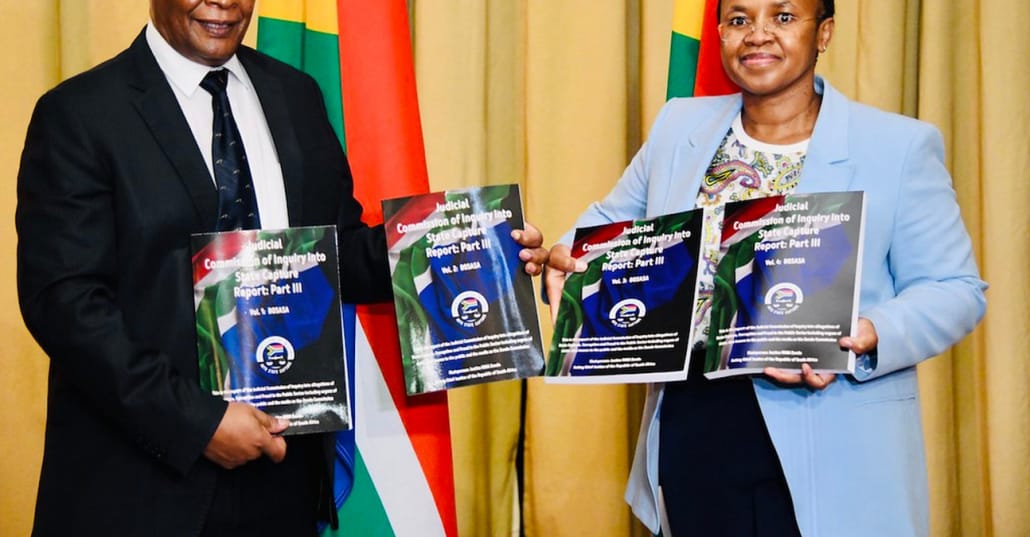News24’s recently launched Zondo Explorer is a valuable tool that facilitates exploring the reams of documents produced during the state capture commission’s tenure. With a particular focus on the the people and organisations named in testimony, the Zondo Explorer does the tough job of wading through all the documents for a certain name.
“We are proud to launch this data journalism project that has real, tangible value to entrench transparency and accountability in South African society,” says News24 editor-in-chief Adriaan Basson. “I wish that every potential employer, employee, business or government entity will use the Zondo Explorer to find out exactly who they are partnering with.”
The project involved using natural language processing techniques and models to “programmatically work through more than a quarter of a million pages of Zondo Commission reports, transcripts, statements and other documents to identify people, organisations, companies and other entities and to organise them in a searchable database,” says News24.
Processing the documents took hundreds of hours of computing time over several months, the organisation adds. This resulted in the identification of “tens of thousands of entities”.
“The natural language models also identified relationships between thousands of entities which may also provide insights which will be valuable to other researchers and investigators as the hunt for the perpetrators of the looting of our country continues.”
Typing a name into the search field brings up a list of references of that name, and selecting any reference brings up the exact page from any of the transcriptions, final reports, or supporting documents such as statements and affidavits.
This makes it much easier to track the implicated parties and their connections, and provides a valuable resource for conducting due diligence.
“It is especially intended to ensure that people and organisations who surfaced in the proceedings or who were named in the evidence gathered by the commission are discoverable,” says News24.
The tool also provides a ready-made list of persons of interest, including Eric Wood of Regiments, former Bosasa executive Frans Vorster, former cabinet minister Malusi Gigaba, and former SABC CEO Hlaudi Motsoeneng, as well as members of the Gupta and Zuma families.
In addition, it provides a starting point for exploring relationships of interest between various parties.
Conversely, if a name is typed and no result comes up, that person or organisation was not mentioned during the Zondo commission proceedings.
Data tools help to keep the momentum going
Corruption Watch (CW) has produced an extensive body of work around the commission, including coverage of all testimony over the three years of hearings, a podcast series unpacking important aspects of the commission’s work, and an analysis of the president’s action plan to implement the commission’s recommendations.
“Such tracking tools are good for helping us keep track of the wins and losses, to monitor not only how perpetrators of corruption are held accountable, but also areas in which our law enforcement agencies are strong or weak, and where they need enhancement,” says CW senior journalist Moepeng Talane, who is responsible for much of the organisation’s commission-related work. “That it’s an online platform is a plus, as it means anyone with an interest in the developments after the commission can access it.”
The organisation recognised the importance of keeping such records, adds Talane. “Thus the Zondo commission project became an really important tool, similar to this one [the Zondo Explorer], that will live on our online platforms forever.”
Years of work
The Judicial Commission of Inquiry into Allegations of State Capture, Corruption and Fraud in the Public Sector including Organs of State, better known as the Zondo commission or state capture commission, was announced by former president Jacob Zuma in January 2018. It held its first hearing in August 2018 with the aim of completing its work in three months.
This commission arose from remedial action recommended by former public protector Thuli Madonsela, in her State of Capture report released in October 2016. That report followed an investigation she conducted into complaints she had received which included allegations of improper conduct by Zuma and certain members of the Gupta family.
One of the points in the remedial action was that Zuma should appoint a judicial commission of inquiry, which should be chaired by someone selected by the chief justice.
Rather than a three-month stint, the complexity and depth of the information that surfaced necessitated a series of extensions and in the end the hearings took three years to conclude – the last witness, on 12 August, was President Cyril Ramaphosa.
Final reports were released in a series between 4 January and 22 June 2022.

